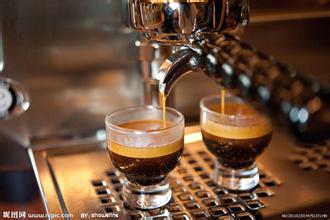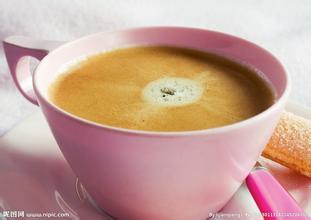The Blue Mountain Coffee Manor in Jamaica introduces the Translanta Manor to St. Thomas
In the Blue Mountain Mountains, the legal production area of Blue Mountain Coffee is more than 2200 feet, and Wallenford only selects Blue Mountain Coffee fruits grown above 4000 feet above sea level for processing. Not only that, Jamaica's four statutory Blue Mountain coffee processing plants Wallenford and Mavis Bank,Silver Hill,Moy Hall account for 90% of Blue Mountain coffee exports, and the Blue Mountain coffee produced by Wallenford,Moy Hall is known as "Superior Quality" (absolute quality). On the official website of the Jamaica Coffee Industry Authority, the list and related management information of all identified Jamaican Blue Mountain Coffee producers and global Jamaican Blue Mountain Coffee sales agents and related management information are reflected on this website.
The extremely stringent quality control of Wallenford Manor is also reflected in the product shelf life, which is usually 12 months for a single roasted coffee, while the most stringent 8-month shelf life set by Wallenford obviously gives up its economic benefits, while wallenford has won the high popularity of coffee glutton all over the world, in their evaluation of all the Blue Mountain estates in Jamaica. Wallenford performs best in quality management, stability, popularity and flavor.
Export quota
According to Jamaica's CIB export statistics as of 2004, 85 per cent of the limited Blue Mountain 1 quota was allocated to Japan, 5 per cent of the United States, 5 per cent of Europe and 5 per cent of other countries. However, in the global consumption distribution of authentic Blue Mountain No. 1, according to the International Coffee Association (ICO), China accounts for 15% of the consumption of Blue Mountain coffee, which stunns the world. The reason is that some shares of Blue Mountain coffee in Japan, Australia and Europe are exported to China through direct branches.
The above differences in export quotas and consumption distribution are extremely embarrassing for the Jamaican government. The asymmetrical Blue Mountain coffee export quota keeps most of the profits in trading enterprises in countries such as Japan, and the Jamaican coffee industry has not benefited from it. The key to the shift was in 2005, when the Jamaican Minister of Agriculture made it clear that Blue Mountain Coffee should be more roasted in Jamaica, directly through quota allocation, preferring to circulate directly from Jamaica to consumer countries.
The means on which the Jamaican government relies on changing export quotas come from Wallenford estates, which are directly controlled by the government, and the wallenford Blue Mountain 1 quota means that the Jamaican Coffee Agency (CIB) endorses the quota target for the country or the company.
In May 2010, Hangzhou Coffee and Western Food Industry Association, with the support of Hangzhou Municipal Government, signed a memorandum of cooperation on trade in raw beans of Blue Mountain Coffee with Jamaica Coffee Industry Bureau in Hangzhou. In July of the same year, the Association was invited to send a delegation to Jamaica to formally inspect the Blue Mountain Coffee Project, and signed a letter of intent of cooperation for China's sole distributor of raw beans of Blue Mountain Coffee on July 15, local time in Jamaica. During the cooperation period, at least 70 tons (70 kg of standard casks in 1000 barrels) of Jamaican Blue Mountain Coffee were supplied to China every year. On May 26, 2011, the first cabinet of raw beans of Blue Mountain Coffee arrived at the port of Ningbo, China. The Jamaican Blue Mountain raw beans imported by Hangzhou Coffee and Western Food Industry Association cover six brands certified by CIB, such as WALLENFORD, MAVIS BANK, GOLD CUP (AMBER), COFFEE TRADES and RSW, as well as NO.1, NO.2, NO.3 and Doudou.

Important Notice :
前街咖啡 FrontStreet Coffee has moved to new addredd:
FrontStreet Coffee Address: 315,Donghua East Road,GuangZhou
Tel:020 38364473
- Prev

Introduction of Pokuit Flower Butterfly Coffee beans in Esmeralda Manor, the most high-profile coffee producer in Panama
At present, in addition to Catuai, Typica and Bourbon, the Lamastus family also began to plant Geisha varieties a few years ago. In spite of this, Elida Manor used Catuai in all the batches of the Best of Panama competition, but achieved good results again and again, which shows that its geographical environment and excellent postharvest treatment technology bring good quality and special flavor to the coffee.
- Next

Smooth and meticulous Nicaraguan coffee producing area manor introduction happy manor Matagalpa producing area
High-quality Nicaraguan coffee, grown in the north and middle of the country. Coffee is a pillar industry in Nicaragua, producing nearly 100,000 tons of coffee beans every year. Many people who have tasted Nicaraguan coffee usually think that it is no different from Salvadoran coffee or Honduran coffee. It is full-bodied, smooth and delicate, with a slightly bitter finish, like a faint taste in a wine. In
Related
- Does Rose Summer choose Blue, Green or Red? Detailed explanation of Rose Summer Coffee plots and Classification in Panamanian Jade Manor
- What is the difference between the origin, producing area, processing plant, cooperative and manor of coffee beans?
- How fine does the espresso powder fit? how to grind the espresso?
- Sca coffee roasting degree color card coffee roasting degree 8 roasting color values what do you mean?
- The practice of lattes: how to make lattes at home
- Introduction to Indonesian Fine Coffee beans-- Java Coffee producing area of Indonesian Arabica Coffee
- How much will the flavor of light and medium roasted rose summer be expressed? What baking level is rose summer suitable for?
- Introduction to the characteristics of washing, sun-drying or wet-planing coffee commonly used in Mantenin, Indonesia
- Price characteristics of Arabica Coffee Bean Starbucks introduction to Manning Coffee Bean Taste producing area Variety Manor
- What is the authentic Yega flavor? What are the flavor characteristics of the really excellent Yejasuffi coffee beans?

